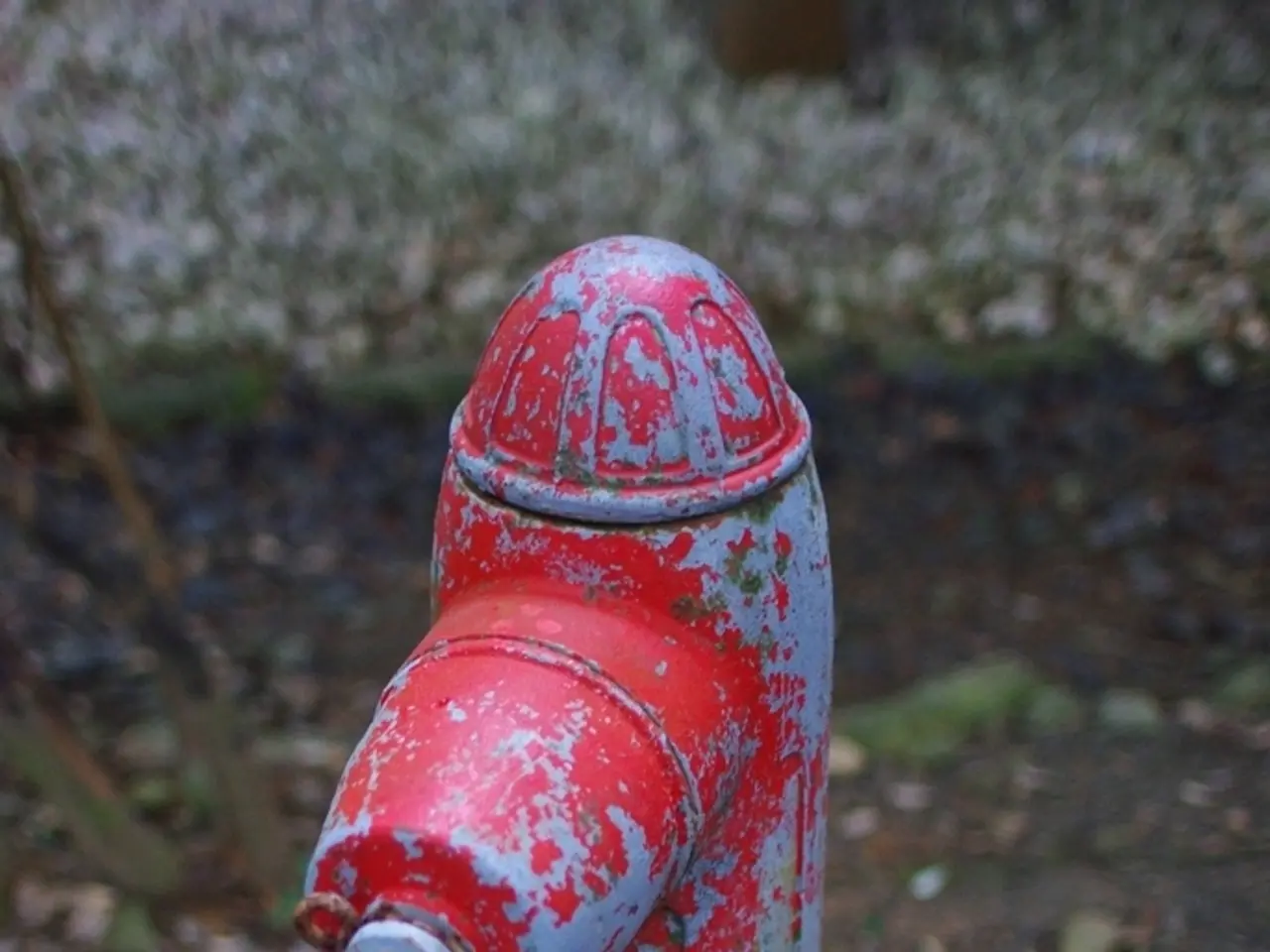Increase in water bills by 21% annually: Saving strategies uncovered
UK household water bills are expected to rise by around 30% over the next five years, beyond inflation, according to a major recent review. This increase is significant compared to initial expectations, reflecting ongoing pressures from regulatory requirements, population growth, infrastructure investments, and environmental goals.
The UK water sector faces growing operational demands and investments through 2030 and beyond. For instance, Southern Water forecasts operational emission rises by nearly 10% between 2025 and 2030 due to population growth and investments, implying rising costs that contribute to bills.
The National Framework for Water Resources 2025 provides annual investment and cost projections for government-led and water company-led actions. Cumulative spending is set to rise sharply from £117 million in 2025-26 to over £600 million by 2029-30 for non-household water supply growth and infrastructure. Though explicit bill impacts are not detailed in this source, increased investment typically translates into higher bills.
Inflation remains a factor impacting household expenses, with the Bank of England projecting headline inflation around 3.75% in late 2025. The 30% water bill increase is stated to be on top of this inflation, making the real rise quite significant.
Ofwat's proposals have sparked a debate among water firms and the regulator, with suppliers wanting to push the average bill to £800 by 2030. As of March 2023, the total debt of the water industry in the UK is £60.6 billion, according to Ofwat.
Thames Water, the UK's largest water supplier, dropped two investment grade credit ratings in an Ofwat investigation and faces fines of £104 million due to excessive sewage spills. Thames Water is the most heavily indebted water supplier in the country, with a debt of £15.6 billion, which is approximately 80% of its business value.
However, there are ways for households to save money on their water bills. Regularly inspecting household appliances for leaks and fixing them as quickly as possible can help reduce water usage and save money in the long run. Households in England and Wales could save up to hundreds of pounds by getting a water meter, as it could lead to significant savings in household costs. Around 40% of households in England and Wales are currently on the 'water rates' system, and they can ask their water supplier to install a meter for free.
If a household finds that they're overpaying with a meter, they can ask their water supplier to revert to the old billing system, depending on the supplier's reverting period (e.g. South West Water's reverting period is two years). Additionally, by using a bucket or a water can instead of a water hose when washing a car, around 100 litres of water can be saved each time.
Dougall, the Chair of Ofwat, has asked the regulator to work with suppliers and CCW to regulate price hikes, ensuring fair access to water for everyone. Dougall also suggests that water companies could recoup funds from customers who have been incorrectly billed, rather than raising customer costs to service debt.
The average water bill in England and Wales is around £473 a year, an increase of around £28 on April 2023. In Scotland, the average water bill will rise by around £36 for the 2024/25 year. Water bills vary across the country, and what you are billed depends on your location, property size, and if you have a water meter.
The final decision on the exact increase in water bills over the next five years will be made by Ofwat at the end of the year. It is crucial for households to stay informed and take steps to reduce their water usage and costs where possible.
Read also:
- Top racer claims Corvette ZR1 might have shaved an additional 10 seconds off its record-setting lap time at Nurburgring
- Will Trump's recently announced Russia sanctions deter Putin's actions?
- A Business Model Explained: Its Purpose and Benefits for Your Venture
- Crafting a Profitable Business Strategy for a Digital Beginning: Established Procedures for Triumph






